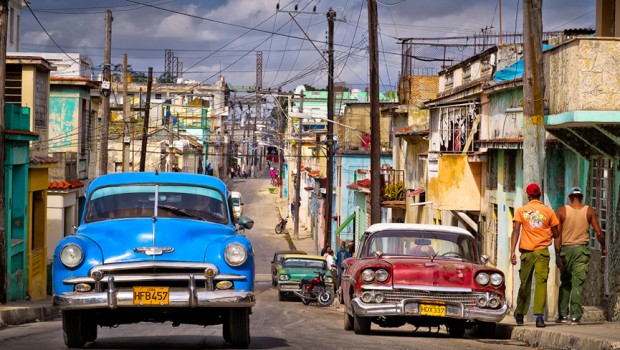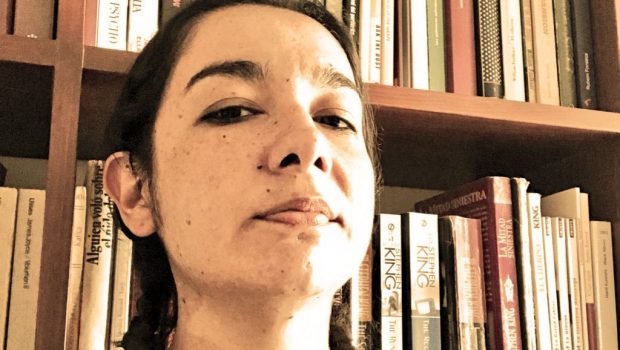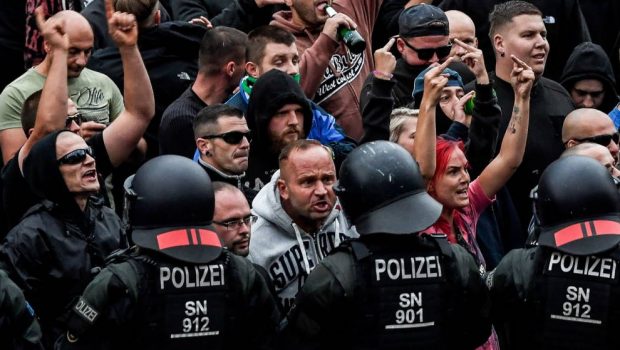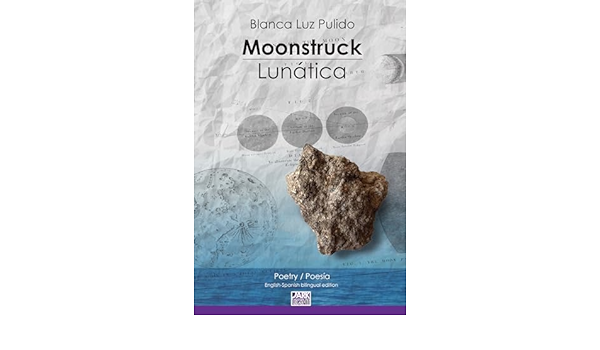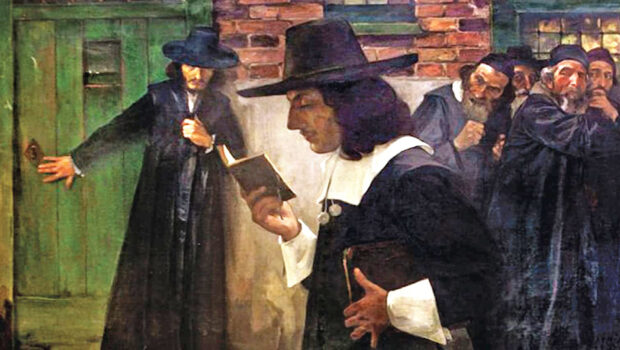The Hunt for Maan Singh
Hipólito Acosta
Hipólito “Poli” Acosta was the officer in charge of the U.S. Immigration and Naturalization office at the U.S. Consulate in Monterrey, Mexico. Poli kicked off his shoes, leaned back in his reclining chair and contemplated the plaque-festooned wall in front of him. His eyes scanned over to a photo of himself in an Afro from his undercover days, and he smiled to himself. He had come a long way from Presidio, Texas, located on the Mexican border, that would become a substantial part of his identity and his profession. Crossing the Rio Grande back and forth practically his whole life accounted for his double cultural perspective and his 100% fluency in English and Spanish. Raised in a rural, arid setting with twelve siblings, he did not learn English until he attended the local three-room school in Redford, seventy-five miles from the school district headquarters in Marfa. His early years were characterized by following the crops with his family, to pick cotton, onions, cucumbers and cantaloupe, whatever was in season. Somehow, he fell in love with reading and became a young nerd, and suffered for it as bullies pushed him around. After high school, he headed for California and worked a variety of jobs as a laborer, and then signed up for a four-year tour with the U.S. Navy, part of which was served on an aircraft carrier in the western Pacific. Back home again, he started college and got married to Terrie, his hometown sweetheart, but ended up joining the Border Patrol rather than obtaining a degree. But Poli yearned for more exciting work than tracking aliens across the desert, checking traffic on the two-lane road between Presidio and Marfa and checking trains in Valentine, Texas. The day he was involved in stopping a smuggling load and making a criminal case against the smugglers, he realized that he would have to transfer somewhere else to get into the more exciting and promising work of interdicting smugglers. When criminal investigator positions in the Chicago district were announced, he threw his name in and was selected. The rest, as the saying goes, is history. From the beginning, he worked undercover on major cases that not only resulted in a reputation for street smarts and daring, but also won him the right to choose to work on whatever cases interested him. Along the way, he picked up numerous awards, including the Newton-Azrak Award, the highest recognition given by the U.S. Border Patrol.
The phone buzzed. It was Jerry “Jake” Jacobson, the Assistant Regional Director for Investigations. The INS assistants had assistants, and they had assistants. But Jake was really the top dog in the area.
“Man, have I got something good for you.”
“Oh, shit, Jake, what are ya gonna get me into this time?” “Look, we’ve got a huge smuggling operation that involves Pakistanis, Indians and Middle Easterners, maybe even terrorists. I really need your help for foreign operations . . . ’cause the big guys are based outside the country. They’re crossing the aliens on foot and then sending them out to cities unknown all over the United States by air.”
“No!”
“Yep, they’re flying out of McAllen, and from there to who knows where. So I need you to come up to a meeting at the McAllen Border Patrol Sector Headquarters. We’ll touch base with the anti-smuggling unit and the chief patrol agent and his staff. We gotta get the whole unit onboard. Yeah, they’re coming in through McAllen like water through a sieve.”
“I’m on it,” said Poli, trying not to show how much he wanted to get from behind his desk and back into the field.
“Good, I’ll send you the details.”
***
Chief Patrol Agent Joe Garza came in holding a cup of coffee and headed for the conference room at 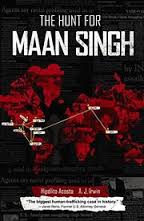 sector headquarters in McAllen. Stars on his epaulets, his leather and brass all shiny, he knew something big was up. Jake Jacobson stood front and center, dressed as dapper as a Chicago mobster. The supervisor of anti-smuggling wore Wrangler jeans and snakeskin cowboy boots—he was a local boy. A few others had assembled when Poli arrived after his two-and-a-half hour drive up from Monterrey.
sector headquarters in McAllen. Stars on his epaulets, his leather and brass all shiny, he knew something big was up. Jake Jacobson stood front and center, dressed as dapper as a Chicago mobster. The supervisor of anti-smuggling wore Wrangler jeans and snakeskin cowboy boots—he was a local boy. A few others had assembled when Poli arrived after his two-and-a-half hour drive up from Monterrey.
“Okay, everybody, can we start now?” Jake was chomping at the bit, impatient to light a fire under these people. “Look, this is what’s happening. We have a potentially huge smuggling operation that’s bringing in Middle Easterners and possibly the ‘T’ word. And it’s happening right here.”
Everyone took a deep breath when Jacobson mentioned the possible terrorist connection.
“McAllen will lead the stateside investigation,” Jake continued. “Poli Acosta from Monterrey will run the foreign operation side and I’ll coordinate from the regional office. We’re gonna get this designated as a multi-jurisdictional task force investigation. Yeah, this is gonna be a fuckin’ multi-jurisdictional!”
“Sounds like a plan,” said the supervisor as he eyed Acosta warily.
Poli Acosta was a legend in the agency for his undercover exploits and busting the biggest human smuggling cases in history. He seemed tireless, time did not matter, but he also had a reputation as overly demanding and, when agents found excuses to not pursue difficult investigations, he simply took over and got it done the right way.
Poli echoed to himself, “Let’s get it on,” but was aware that many agents got their commendations for fishing people out of the river and sending them back to Mexico. Nothing was easier than sitting around and bullshitting, then going out for the evening’s catch. Hunched over and supporting himself at the head of the conference table, Jake finished off saying, “Look people, instead of taking down local coyotes, we’re gonna take down an entire smuggling organization . . . let’s call it a cell. Once we identify the operation, we’re not gonna take it down. Don’t get antsy. We’re gonna follow the groups up to the delivery point, with the ultimate objective of identifying everyone . . . from the point of origin all the way to the end . . . including businesses and relatives who pay the huge smuggling fees that, I understand, can be up to $30,000 per head.”
***
It didn’t take long for the substation in Brownsville to catch a load of Indians and Pakistanis crossing the border. Special Agent Enrique Flores went into action and flipped one of the coyotes. Now, a sleazebag named Juan Pérez would be working for the INS. Pérez guided the aliens to the Best Western Inn, where they regularly paid off the clerks. Pérez interviewed the aliens, finding out their routes and ultimate destinations, and the government agents got an earful. But this was only secondary to his actually collecting the passports and money and allowing the agents to copy the documents. The agents then ran the names on the passports through the databases to make sure the aliens were not on terrorist lists—if so, they’d be taken down immediately. Also, the passport copies would allow the agents to track down the aliens in the future, because there’d be no free passes as a result of this undercover operation. Plus, they’d need these aliens to testify in any eventual case, and the smuggling fees would come to play at court in tying the aliens to the smugglers.
Enrique Flores and his crew had spent time training Pérez on how to elicit important information from the aliens. It was important for them to reveal their contacts and experiences along the route they had taken to get them to the U.S. border. Pérez’s conversations with the aliens were being recorded. Despite the agents’ interest in shut- ting down a local operation, one name of someone beyond the border was repeated on the lips of the aliens: Maan Singh. McAllen Border Patrol had never heard that name and was not interested in following this lead. They wanted to interdict and take down the local operation, feel good about it and get back to business as usual.
But Jake Jacobson, back in Dallas, had read the McAllen reports and had the geeks of Regional Intelligence research the names that came up, including that of Maan Singh. All the intelligence had been condensed into a 35-page report on human trafficking from India. It estimated that seventy-five percent of the Indians entering illegally through the southern border were attributable to Maan Singh.
When Jake finished reading the report, he blurted out, “Holy shit! He’s the godfather of alien smuggling from South Asia!” It was obvious to Jacobson that the intelligence community, including the CIA, was aware that a big boy in human smuggling was a guy named Maan Singh. The higher ups in intelligence knew it, but that info had never gotten down to the people on the ground. Therein lay the danger to our country: as in the 9/11 snafu, there was no intelligence sharing. If Maan Singh had decided to smuggle in terrorists, he would have been successful, because he only cared about one thing: the fees he collected, regardless of the intent of his individual clients. McAllen had unleashed a monster it would not be able to control.
* This excerpt is reprinted with permission from the publisher of The Hunt for Maan Singh, by Hipólito Acosta and A. J. Irwin (©2016 Arte Público Press – University of Houston).
Posted: July 7, 2016 at 10:35 pm



